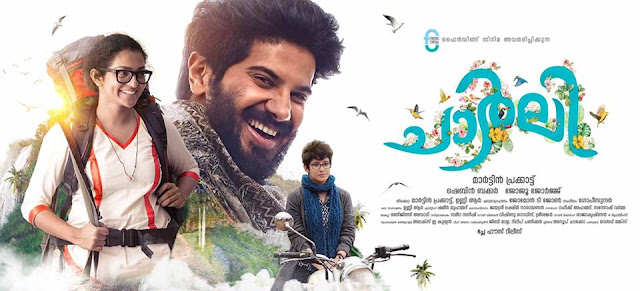The Wolf in the Whale by Jordanna Max Brodsky
I admit, I have never read the Olympian Bound trilogy - the first
series by Jordanna Max Brodsky. So I came into The Wolf in the Whale, fairly oblivious to Jordanna's amazing
talent. Which kind of heightens the joy of having read this absolutely epic
magnum opus. Jordanna picks up an off-beat little known account of a meeting
between the Inuits and the first expedition from the Vikings land and then
spins that off into a highly engaging, magical and sprawling epic full of
timeless mythologies and peerless magic, building it up as a historical fiction
that soars. In terms of the originality and the stunning language, The Wolf in
the Whale stands way above many other books that I have read, in the recent
past.
It is the story of the coming
of age of Omat - a fearless Inuit hunter and shaman living on the edge of the
world, living off the frozen nature and the bounties that the Ancient Spirits
like Sea, Wind, Moon,Sun and the Animal spirits like the Wolf or the Whale,
allow the ice-dwellers to hunt down. Omat's tribe is small - most of the able
young hunters having died in a tragic accident, it is left to the wits of
Omat's grandfather and her brother Klassik's fierce spirit along with Omat, to
fend for the small tribe. Now Omat is special. In that Omat is born a girl but with a man's spirit inside her[ That
of her father ] and is protected by the Great Wolf who watches out for her! And while it is traditionally frowned down upon for a woman to wield a hunting
weapon like harpoon, Omat's grandfather a shaman himself, has convened with the
spirits and deems it right that Omat be brought up like a boy. befitting the
great warrior that her father was.
The appearance of a new tribe
or family even as the winter is getting worse and hunt scarce, sets hope
soaring among Omat's family. But things go downhill from there as the newcomers
disrupt the Omat's peaceful have; Omat's grandfather dies suspiciously after a
seal-hunt and they decide to strike out on their own with Omat claimed as prize
by Issuk, the leader of this small tribe. But struggling to live and reconcile
to her role as a "woman" in that tribe, deflecting off the jealousy
and hurt that her milk-brother Klassik now probably cares more, for Issuk's
second wife, Omat is reduced to a mere shadow of her older self. But then
again, the Gods are cruel and temperamental. Stripping away her magic as a
shaman who has the ability to summon animal spirits and take on their shapes as
well, the jealous Gods of this old world make Omat's life a living hell.
Indeed, Omat's troubles are only beginning as Omat finds out shortly - when a
ship of Vikings lands up near the frozen shores. This encounter soon turns
bloody and shifts the trajectory of her life forever.
The long struggles in the deep
wilderness of the Arctic frozen lands plays out cinematically in the backdrop
of fevered dreams, magical possessions and cold-hearted violence. Omat's
constant struggle about her identity in this world - as a man trapped in a
woman's body - is the anchor-point of a spellbinding narrative woven by the
author. Jordanna brilliantly juggles this question about gender based identity
that has seeped through cultures, even one as remote as the Inuik at the turn
of the first millennium, walled off from the rest of the world in their arctic
wilderness. A culture still bound by rules set in place by men where stories
are grim and horrific about rape and the powerlessness of womenfolk. Despite
the flighty adventures that Omat and her loved ones go through, which make us
flip the pages faster as one danger after the other mounts up, there are several
hard questions that Jordanna raises deftly enough to rattle your mind.
There is a timeless romance in
the book - and surprisingly enough, one that builds up only in the second half.
But Omat and Brandr's tender love story that brings in a lot of balance and
perspective and resolve into Omat's broken life, is beautifully rendered. It's a
story of an unlikely bond and friendship between strangers from two completely
different cultures and it unravels beautifully. Brandr forces Omat to examine
herself deeply - the story of her transformation from an arrogant shaman who
truly believed in her man-hood into a humble and practical survivor who
understood the roles and skills of a woman in such lands.
This review is incomplete
without the mention of a couple of things. The harshness of life in such frozen
tundras of the world is incomprehensible but Jordanna does a fine job in
introducing the readers to this obscure culture and a unique way of
living. Like the whole spectacle of hunting a whale becomes a compelling
exercise. Similarly, the whole melting pot of mythologies and stories that make
up the Inuit culture is brought to fore in fascinating detail, effortlessly
tied into the storytelling. The magic is almost real, as you soar above the
winds, to meet the Moon or go running the wilds, next to the Singarti, the
Great Wolf spirit. And also, last but not the least Omat’s family in the wild –
the pack of wolf-dogs are the most amazing thing in this whole story.
This amazing book is possibly one of the best novels in 2019 and I
don’t say that lightly. Omat’s transformative journey will captivate historical
and fantasy readers alike as Jordanna brings alive an enchanting chapter in our
history that is relatively obscure and then sprinkles in myth and magic to make
that story sparkle.




Comments